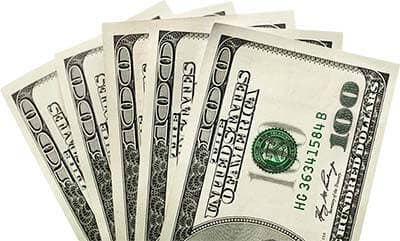
What You Need to Know to Build Your Credit
Credit scores are used in many areas of life such as applying for a new job, getting an apartment, and buying a car. Your score is used to help balance both your risk and the lenders risk when offering you credit.
What Determines My Credit Score?
Your credit score is commonly calculated from a few different areas.
Common Questions
The three main bureaus are Experian, Equifax, and TransUnion. However, there are smaller credit reporting agencies that lenders work with as well.
These agencies are certified under the Fair Credit Reporting Act. By federal law, you are entitled to receive a free credit report from all three major credit bureaus every 12 months. Get your annual credit reports at www.annualcreditreport.com.
Great scores (often called “prime scores”) usually range from 700-850. Good scores (sometimes referred to as “near-prime”) can range from 650-699. If you’ve had a few speed bumps on the road to credit, scores may range from 600-649 (often called “sub-prime”). It can be difficult to get a line of credit and a good interest rate if your credit score is below 600. Obtaining your credit report and clearing up any errors or issues on it is so important.
According to FICO, risky behaviors such as maxing out a credit card, being over 30 days late on a payment, or doing a debt settlement can reduce your score from 10 to 125 points! Credit inquiries typically only affect your score by a few points. Learn more about credit scores at www.myfico.com
Credit reports don’t just show mistakes, they also show positive attributes that help build a positive credit history. Keeping credit accounts open after paying them off can also have a positive impact on your score. This is why having good credit often helps you qualify for more money.
Installment loans can be a better solution than the negative effects of bankruptcy, foreclosure, liens, collections, defaults, or settlement.
Qualifying for an installment loan is about more than just your credit score. Lenders consider your job type, how long you’ve been at your job, monthly pay, debt to income ratio, and sometimes even your education. The interest rate you pay will depend in part on your credit score - a better interest rate for a higher score. Your interest rate may also be affected by which state you live in. Even if you have less than perfect credit there are loan options available.
If you are just starting to build credit history, it can be tough to get a loan. Unfortunately, paying utility or cell phone bills is not reported to credit bureaus. However, an installment loan can help you get started. Some lenders may report your payment history to the major credit bureaus.
According to Vantagescore.com, getting an installment loan can actually improve your credit score if paid back on time. Many lenders connect to other 3rd party databases as part of their underwriting. Consumer performance reports can give lenders information on bank account transactions, phone/address changes, and identity theft or fraud. This type of information gives lenders the ability to determine how credit-worthy you are, even with thin credit.
An installment loan could help you consolidate debt into one manageable payment. Learn more about how InstallmentLoans.com works.
“I didn’t think I could ever get a loan… I had been turned down everywhere!”
— Beth

Why wait? Get the money you need!
In less than 5 minutes you could find a lender and get the money you need in your account as soon as tomorrow!*